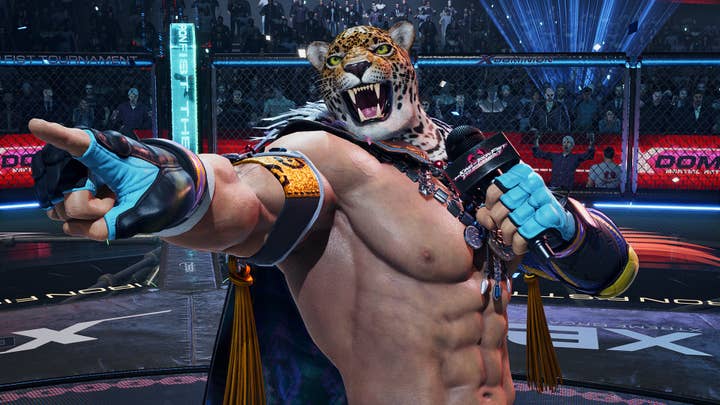Tekken 8 wins King of the Iron Grift | This Week in Business
Bandai Namco hiding the in-game store until weeks after release is a deliberate attempt to mislead consumers
This Week in Business is our weekly recap column, a collection of stats and quotes from recent stories presented with a dash of opinion (sometimes more than a dash) and intended to shed light on various trends. Check every Friday for a new entry.
Earlier this week, Bandai Namco unveiled the post-release product roadmap for the recently launched Tekken 8 in a livestreamed presentation, in the process unveiling its plans to add an in-game shop where players can buy customization items and throwback character costumes for real money.
It was clear from the livestream that they knew this might not go over well with a certain part of the audience.
QUOTE | "We hear that some people might have some kind of allergic reaction when they hear the word 'shop,' etc., but it's more trying to update the game and keep it fresh with new customization items." – Tekken 8 chief producer Naoya Yasuda says during the roadmap stream that the developers aren't doing this to make money; they're only trying to "provide a better experience overall."
It's hard to read Yasuda's comments about "some kind of allergic reaction" as anything but dismissive here. But a developer being a little bit dismissive to a segment of the player base isn't my problem here; I actually wish developers were a little bit more dismissive of paying customers in general whenever it came time to put toxic elements of the audience in their place.
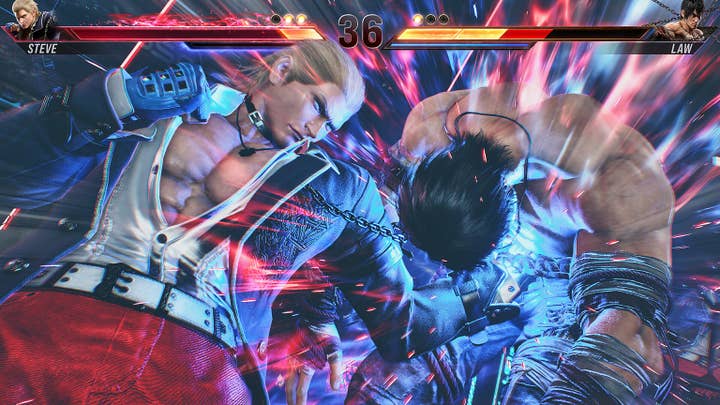
My problem here is that Tekken 8 came out barely a few weeks ago, and I'm pretty certain this shop didn't just occur to them the day after launch. They've been planning on putting it into the game for some time now, and decided not to share that information with customers until after the game launched, the first wave of preorders were filled, the reviews were written, and the word of mouth around the game had formed. After all, they didn't want people with "some kind of allergic reaction" to the game's actual business model to impact any of that.
It's a crappy move to pull on customers and a complete bait-and-switch
To extend the metaphor a bit, it's like going to a restaurant, ordering your meal, and then being told partway through the main course that there's a bunch of peanuts and shellfish in there that they never mentioned on the menu. It might not a big deal for most people, sure, but that doesn't make it OK to do.
The stakes aren't quite life-or-death with Tekken 8's in-game store, for sure, but it's still a crappy move to pull on customers and a complete bait-and-switch, selling them a product without the thing they hate, knowing full well you're going to force the thing they hate into it a few weeks later.
"But what's the big deal," you might be saying. "They're just adding this thing and if I don't want to buy the stuff, I can simply ignore it."
As one of the aforementioned allergic people, I will do my best to explain this. The act of deciding whether or not to buy something requires a bit of work. Not much, usually, but a bit, because there are questions I need to ask myself, like:
- Do I want this?
- How much am I willing to pay for it?
- What are they asking for it?
- Is it virtual currency?
- How much is that in actual money?
- Do I buy the smallest amount of virtual currency to get this item, or a larger bundle that would be more cost-effective?
- Is there enough other stuff I want to buy so I don't end up with a bunch of unspent virtual currency? (Repeat this decision-making process for those items as needed)
- If the items is on sale, how big a sale is it?
- When does that sale end?
- Is it likely to go back on sale later, and would it be at a deeper discount?
- How bad is my fear of missing out on this?
- Will I actually use it and enjoy it enough to justify the purchase?
- How much discretionary income do I have to be throwing at stuff like this right now anyway?
Deciding to buy one thing, like a full-price video game, let's say, is not a tremendous burden.
Even buying a few things, like the occassional DLC characters we knew were coming to Tekken 8, can be somewhat manageable for me, particularly since I know to expect a new character a handful of times a year and buying them all to satisfy my completionist tendencies might not be an absurd burden.
But the Tekken in-game shop is going to be updated every week or two with new content, and offering a large enough array of items that I can see the whole thing becoming obnoxious in a hurry. In fact, it's already obnoxious just from what little they showed during the roadmap stream.
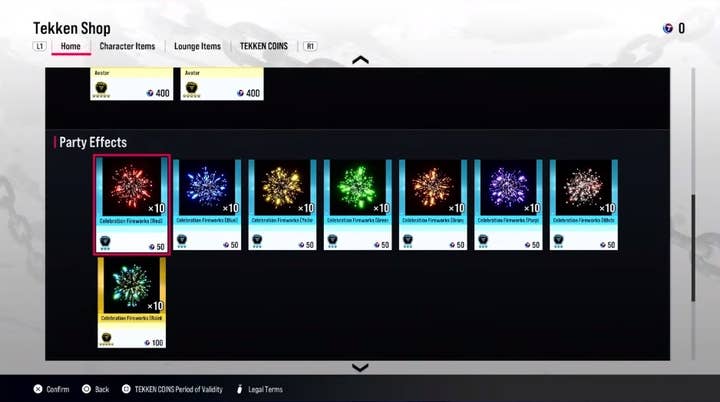
Do I want the green fireworks effect for 50 Tekken Coins or the rainbow fireworks effect for 100 Tekken Coins? And wait a second, these are shown as selling in bundles of ten, so apparently they're consumables and I can only use the effect ten times before needing to buy more? And what's that bit at the bottom? I need to press the Square button to learn about Tekken Coins' "Period of Validity," suggesting they'll expire on me at some point? Excellent, let me just go back and add a bunch more questions to that purchasing decision list above, and a ton more snark around Yasuda's assertion that they're doing this to provide a better game experience instead of just make money.
Games can be relentless about making players go through the purchase decision process time and again, with store buttons on every page and constant reminders that you could have more game, if you just decide to buy it.
I usually play games for fun and enjoyment, not to be subjected to a procession of sales pitches and ads during a break from a real world where I'm already bombarded by the same. I resent it, the same way developers apparently resent me for not wanting to spend my free time ignoring constant exhortations to spend money in a game that would already cost me $93.49 Canadian (plus tax).
So I make what I see as the completely reasonable decision to not buy games that I can see are designing themselves to be a minefield of purchasing decisions. I make one informed purchasing decision to save me from so many more.
Regardless of my stated reasons or how valid you think they are, Bandai Namco clearly knows there are "allergic" consumers like me out there, and it doesn't care in the least about allowing us to make that informed purchase decision. It would rather trick the money out of us.
STAT | 2 million – The number of copies Tekken 8 sold between its January 26 launch and Bandai Namco reporting its earnings on February 16.
I don't know how many of those 2 million people would have passed on Tekken 8 if Bandai Namco had been honest about the in-game store from the word go, but it doesn't really matter. Even if it's just a handful of people, then Bandai Namco is torching its reputation with those people and inviting terrible word of mouth over a matter of pennies. The larger the group of people is, the more it would look like Bandai Namco was willfully misrepresenting its product to scam money out of people who wouldn't have given it willingly otherwise.
Bandai Namco isn't the first company to treat paying customers with this particular strain of contempt
Of course, Bandai Namco isn't the first company to treat paying customers with this particular strain of contempt. Capcom last year added microtransactions to its Resident Evil 4 remake a month after the game launched, and companies like Activision Blizzard have done the same in the past, not to mention having microtransactions on games like Diablo 4 turned off and hidden from reviewers and players alike until after launch.
Because as always, this industry has boundless hostility for the idea that anyone should be able to make an informed purchasing decision, or that its business models should be transparent to anyone who isn't already deeply invested in them.
But I don't want to characterize this as big evil publishers acting on nothing but greed, because that would be overlooking a clear element of pitiful desperation.
QUOTE | "We can do collaborations with many different people with this [Uniqlo-branded in-game store] area, it's quite flexible. So even, you know, personal people, if you have a spare $850k or so, come talk to us and we can put your message up on the ceiling." – Tekken 8 executive game director Katsuhiro Harada during the Tekken 8 roadmap stream, coming off less like the creator behind a cherished and successful fighting game franchise and more like ol' Gil trying to sell you some Colecos.
But looking at Bandai Namco specifically, this desperation to clutch at every last nickel even if it means wilfully deceiving customers about what's in the game seems uncalled for. Its most recent quarterly results were solid, with gaming sales sliding a little on a tough comparison against the previous year, when Elden Ring had its first holiday quarter on sale. And if we look back over the past decade, Bandai Namco has enjoyed a healthy stretch of growth.
STAT | 46% - Bandai Namco's gaming division revenues for fiscal 2023 were up 46% over fiscal 2013. The division's operating profits were up 35% over that same span.
Even with that growth, the pressure to squeeze more money from consumers is such that the company must resort to shady-on-the-face-of-it maneuvers like keeping the Tekken 8 microtransaction store secret until after launch, and more desperate actions like open pleas for in-game advertisers.
Over the past decade, companies across the industry have innovated as hard on monetization as gameplay
This is what worries me, because Bandai Namco's actions are by no means unique or unprecedented over the past decade, as companies across the industry have innovated as hard on monetization as gameplay, pursuing new revenue streams with deliberate disregard for customer rights or fair dealing, and often over the vocal objections of the player base.
Always-online requirements for single-player modes, dark patterns in live service games, engagement-driven design with no guardrails for the addictions it creates (addiction the industry will not even concede exists), VIP programs to manipulate whales into spending ever-more unreasonable amounts on their habits, in-game ads, loot boxes (yeah, just plain ol' loot boxes)…
Some of these tactics are no doubt drivers of that industry growth we've seen, but they are all aggressive and at best questionable tactics that have been widely pursued and embraced while the industry has been thriving. You may have noticed that the industry is no longer thriving.
STAT | 1.3% - Newzoo said last month it expects gaming worldwide revenues to grow at a 1.3% compound annual growth rate from 2021 through 2026.
We wanted to compare that stat to the previous decade's worth of game industry growth, and Newzoo was gracious enough to help us out.
STAT | 11.7% - Newzoo told us that games revenue grew from $71.1 billion in 2012 to $192.7 billion in 2021, good for a compound annual growth rate of 11.7%.
We're about to see how much more aggressive things will get when the industry practically plateaus, expanding at a more modest rate than anything approaching the stratospheric growth we've seen since digital distribution, mobile gaming and post-launch monetization really took off.
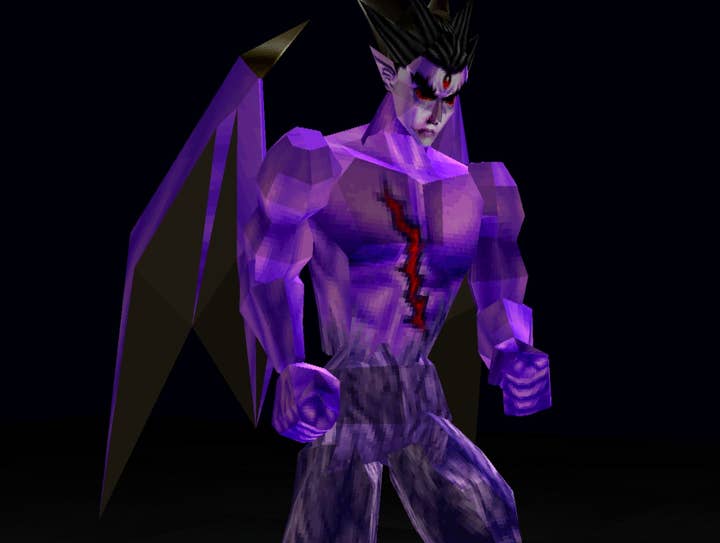
I especially worry we'll look back at the state of things today as "really not all that bad," because that is essentially what we've done in another sector I pay particularly close attention to because of my job, the media world.
I especially worry we'll look back at the state of things today as "really not all that bad"
Have you tried visiting a website these days? Don't do it; it's just awful.
Autoplay video, ads blocking half the screen and bumping and shuffling the text around in the hopes that you'll accidentally click where you don't want to, pop-ups asking to send you notifications, infinitely scrolling websites jammed full of Taboola ads trying to look like actual stories…
I could not think of a more reader-hostile experience without somehow putting it into a heavy headset you have to wear for work that also gives advertisers the ability to make you motion sick. (Please please please don't let Zuckerberg's metaverse vision become real.)
This is what desperation will drive businesses to.
Let's compare that with a (relatively) healthier time in online media, when a plethora of websites were thriving and growing. Let's go back to 2003, when the most unthinkably extreme user-hostile ad design on major sites was McDonald's buying up all the ad space on IGN to promote its then-new fast food breakfast concept: McGriddles.
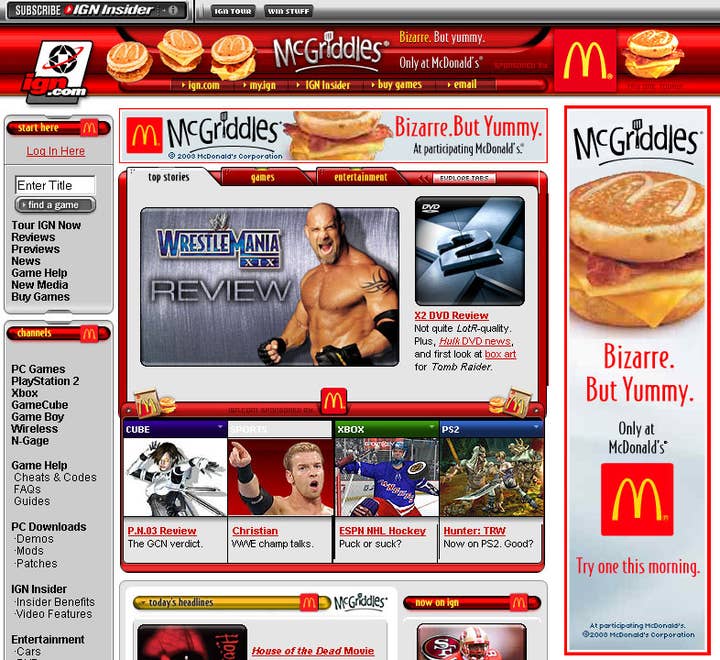
It's hilarious. It's awful. But it's also pretty innocuous in the grand scheme of things. It's from an advertiser outside of games so there's little question about it influencing the actual coverage. And most importantly, it didn't stop the site from doing what the site is supposed to do: Convey information to readers.
I would honestly trade what we have now for the equivalent of constant McGriddle takeovers in a heartbeat, and it scares the hell out of me to think that a no-longer-booming games industry will have me looking back on practices like Bandai Namco hiding the Tekken 8 DLC shop from customers with the same kind of wistful yearning for a simpler age.
The rest of the week in review
STAT | 15% - US consumer spending on games was up 15% year-over-year in January to $5.1 billion, according to Circana.
STAT | $6.6 million – How much EA offered collegiate athletes to use their likenesses in the upcoming College Football 25. Sure, it only works out to $600 per athlete, but it's a start.
Also, it will be hilarious if College Football 25 launches without star players from a bunch of major schools but the name and likeness of every fourth string kicker from all 134 Division I schools.
QUOTE | "The bar is super high right now. Before, a great game idea plus a great team used to cut it. You could walk out and get a couple of million dollars from a West Coast VC pretty easily with that. Now, it's about how are you validating this? What can you show me… There is a lot more scrutiny. There has always been scrutiny, but there is just a lot more." - VC Hiro Capital partner Spike Laurie was one of a number of investors we spoke with to ask about the state of investment in games.
QUOTE | "We're choosing to control our own destiny and self-publish our game in the West with direct support from our player community." – Frost Giant Studios started with successful seed funding rounds, but now it's turning to players to invest in the studio.
STAT | $76.7 billion – DDM's total of gaming mergers and acquisition activity for 2023, which sounds phenomenal until you realize that once you take Activision Blizzard (which was announced in early 2022 but finally closed last year) out of the equation, 2023's total was about $8 billion, the lowest total since before the pandemic.
QUOTE | "When you think about the cogs that we're going to put in a console – and as you have fewer suppliers and fewer buyers – the cost of the drive does have an impact… But I will say our strategy does not hinge on people moving all-digital. And getting rid of physical, that's not a strategic thing for us." – Xbox head Phil Spencer denies rumors that Xbox was dropping physical media, while also noting it's not something Microsoft will insist on if consumer demand isn't there because disc drives are getting more expensive.
QUOTE | "A lot of the lessons I've tapped into here to lead Inflexion are lessons we started to learn at Bioware 20+ years ago, and then I would offer that we stopped honoring and stopped valuing [with] the acquisition by Electronic Arts." – Former Bioware GM co-founder Aaryn Flynn talks about the launch of Inflexion's debut game Nightingale and the willingness to delay a game.
QUOTE | "I learned how to build a community because fighting game players don't trust you. They do not trust you, and they want events tailor-made for their needs, they are very particular. I definitely learned from the toughest community there is." – As part of our Black Voices Progress Report series, Junae Benne talks about opening her own gaming lounge specifically for fighting games, just one part of her multi-faceted career in games.
QUOTE | "During lockdown and COVID, the needle started to move in a progressive direction but I think now it feels like it's going backwards. It feels like two steps forward and three steps back, like we're just going back and forth for now." - In our other Black Voices Progress Report feature this week, Ready Player Two co-founder Akua Harris talks about progress in the industry, as well as what could be done better to ensure more equitable outcomes for people.
STAT | Six years – The time between Motiga announcing that it was shutting down servers on its free-to-play MOBA Gigantic and Gearbox Publishing announcing it would be bringing back Gigantic as a premium title without microtransactions.
STAT | One month – The time between Build A Rocket Boy announcing that it had raised $110 million to continue working on its slate of projects and Build A Rocket Boy instituting a wave of layoffs across multiple departments at its three studios.
QUOTE | "Gameloft has been supporting Ukraine since the first days. Each of the studios here has already demonstrated its resilience and professionalism many times, especially during the last two years of the military conflict. However, taking into account market conditions, the company is forced to optimize resources and rationalize some projects at the company level." - Gameloft's Tetyana Zadorozhna explains why the mobile publisher laid off 38 people who had been working at its office in Lviv, Ukraine, which is a really weird way to "support" people who have been enduring some incredibly difficult circumstances for years but still managed to keep showing up to work for you.
An unspecified number of employees at Gameloft's Toronto studio were also laid off this week.
QUOTE | "We're still working out the final composition of our union, but we are thrilled IGN came to the table and recognised us." – The IGN Creators Guild announced this week that the employee union has been voluntarily recognized by IGN parent Ziff-Davis.
Congratulations to the workers of IGN, and good on Ziff-Davis for not drawing things out and making them jump through hoops.
